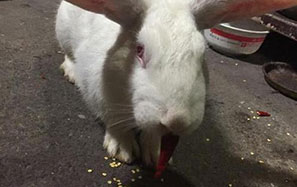Team pulls its paper on gene editing
Chinese biologists to conduct more research at another lab
A biological research team from China said on Thursday it has withdrawn a controversial paper on a new gene-editing technique and will carry out further research at a third-party laboratory.
The team, led by Han Chunyu of Hebei University of Science and Technology, published the paper in May last year in the international science journal Nature Biotechnology.
The paper claimed the technique devised by the team may be more efficient and versatile than the CRISPR-Cas9 genome editing technique, which has been used on a wide range of organisms, Xinhua News Agency reported.
After being published, the paper drew a flurry of attention from media and academia, with many questioning whether the experiment could be replicated.
Some researchers in China and other countries have tried to reproduce the original experiment based on its first description, but no one reported a success.
In December, Han's team and several additional independent groups provided the journal with new data claiming to have reproduced the gene-editing technique, Nature Biotechnology said in an article published on Wednesday.
At the time, the team and new groups were asked to gather additional experimental evidence to bolster their claims.
So far, the independent groups that reported initial successes in reproducing the results have not been able to add to their preliminary data to a publishable level, the journal said.
According to the statement made by Han's team on the university's website, the decision to withdraw the paper was made to respect accuracy in scientific research.
Together with other researchers, the team will continue to do related research at a third-party lab, aiming to verify the effectiveness of the gene-editing technique and figure out why their original experiment could not be repeated with the same results.
The university also said it will carry out an evaluation of the paper.
An employee with the publicity department at the university said on Thursday that Han and his team might not want to give more information on the matter right now.
"There are two problems to be solved-whether their experiment is reproducible, and if not, why," said Shao Feng, a researcher with the National Institute of Biological Sciences, who was quoted by The-Intellectual, an account on WeChat.


























